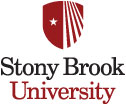Stony Brook, New York-October 3, 2016--Stony Brook University, part of the State University of New York system is now offering a Global Health Diplomacy Massive Open Online Course (MOOC), available on Coursera. This beginner-level class provides an in-depth look at the diplomatic, financial, and geopolitical context that underlies global health decision-making. Global health diplomacy drives priorities in public health and impacts practitioners on the ground. Yet, the subject is rarely formally addressed. Despite much recent progress being due to global health diplomacy – on issues such as vaccines, nutrition, and global health security – both new and seasoned practitioners are hard pressed to define global health diplomacy or explain its value. “We created this class to fill a big knowledge gap in the field of global health,” said Peter Small, Founding Director of the Global Health Institute at Stony Brook. “When more people in the world understand global health diplomacy it will accelerate and intensify the immense progress we have seen recently and free online courses are an amazing tool to educate the world.” Upon completion of the course, learners will understand the role of diplomacy in global health, and be able to describe and analyze the opportunities, challenges and limits of Global Health Diplomacy. They will also understand the diverse actors engaging in global health diplomacy, including the World Health Organization (WHO), the World Bank, Global Fund, GAVI and the Bill & Melinda Gates Foundation. “Just this month, we have seen several major examples of global health diplomacy in practice. The Canadian government led fundraising efforts for HIV, TB and malaria, and the United Nations hosted a special session on antimicrobial resistance,“ said Gabrielle Fitzgerald, global health strategist. “Understanding why these events are held and what they accomplish is important to understanding both global health and broader international relations and diplomacy.” Dr. Small and Gabrielle Fitzgerald created the new online class, which is available free from Coursera. In the first two months more than 250 people have taken the course, nearly half of whom live in Africa or Asia. For more information, visit www.coursera.org/learn/global-health-diplomacy. This is Stony Brook’s sixth MOOC that has been released since SUNY (the State University of New York) became full-time partners with Coursera. ###About Stony Brook University Part of the State University of New York system, Stony Brook University encompasses 200 buildings on 1,450 acres. Since welcoming its first incoming class in 1957, the University has grown tremendously, now with more than 25,000 students and 2,500 faculty. Its membership in the prestigious Association of American Universities (AAU) places Stony Brook among the top 62 research institutions in North America. U.S. News & World Report ranks Stony Brook among the top 100 universities in the nation and top 50 public universities, and Kiplinger names it one of the 35 best values in public colleges. One of four University Center campuses in the SUNY system, Stony Brook co-manages Brookhaven National Laboratory, putting it in an elite group of universities that run federal research and development laboratories. A global ranking by U.S. News & World Report places Stony Brook in the top 1 percent of institutions worldwide. It is one of only 10 universities nationwide recognized by the National Science Foundation for combining research with undergraduate education. As the largest single-site employer on Long Island, Stony Brook is a driving force of the regional economy, with an annual economic impact of $4.65 billion, generating nearly 60,000 jobs, and accounts for nearly 4 percent of all economic activity in Nassau and Suffolk counties, and roughly 7.5 percent of total jobs in Suffolk County.
Stony Brook University Offers Global Health Diplomacy Online Course Beginning October 3

30-Sep-2016 4:05 PM EDT,
by Stony Brook University
close
- Login
-
News keyboard_arrow_right
Latest News Coronavirus News Currently Embargoed News Research News Releases Google Fact Check Research Alert Preprints Marketplace News with Video/Audio Multimedia
 RSS
Medicine keyboard_arrow_right
Biotech Cancer Coronavirus/COVID-19 Clinical Trials Diabetes Genetics Infectious Disease Neuro Obesity Women?s Health View all Medicine Channels arrow_right_altSciencekeyboard_arrow_rightChemistry Climate Science Dinosaurs DOE Science News Engineering Materials Science Physics Space View all Science Channels arrow_right_altLife keyboard_arrow_rightBehavioral Science Education Government History Politics Social Media View all Life Channels arrow_right_altBusiness keyboard_arrow_right Journal News keyboard_arrow_rightCell (journal) JAMA Journal of Experimental Medicine Nature (journal) NEJM Neurology (journal) PLoS View all Journal Channels arrow_right_altBy Location keyboard_arrow_rightAfghanistan News African News China News Cuba News Europe News Germany News Gulf of Mexico India/Pakistan News Iraq News View all by Location Channels arrow_right_altMeetings, Grants, and Events keyboard_arrow_right
RSS
Medicine keyboard_arrow_right
Biotech Cancer Coronavirus/COVID-19 Clinical Trials Diabetes Genetics Infectious Disease Neuro Obesity Women?s Health View all Medicine Channels arrow_right_altSciencekeyboard_arrow_rightChemistry Climate Science Dinosaurs DOE Science News Engineering Materials Science Physics Space View all Science Channels arrow_right_altLife keyboard_arrow_rightBehavioral Science Education Government History Politics Social Media View all Life Channels arrow_right_altBusiness keyboard_arrow_right Journal News keyboard_arrow_rightCell (journal) JAMA Journal of Experimental Medicine Nature (journal) NEJM Neurology (journal) PLoS View all Journal Channels arrow_right_altBy Location keyboard_arrow_rightAfghanistan News African News China News Cuba News Europe News Germany News Gulf of Mexico India/Pakistan News Iraq News View all by Location Channels arrow_right_altMeetings, Grants, and Events keyboard_arrow_right - Experts keyboard_arrow_right
- Journalists
- Pricing
- About keyboard_arrow_right
- Blog FAQ Help